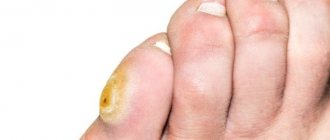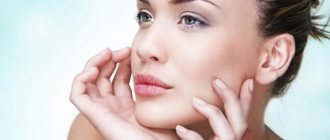What is vitamin A
Vitamins are regulators of biological processes, without which the biochemistry of the body and the functioning of organs are disrupted. Most of them come from food, and some are synthesized by the body or intestinal flora. Vitamins are divided into water-soluble and fat-soluble. The former do not stay in the body for a long time and are excreted with metabolic products, while the latter accumulate in the liver. We wrote about vitamin D - the only one that affects the body's immune defense. But C turned out to be not as useful as dietary supplement manufacturers write about it.
Vitamin A is fat soluble. A person receives it from food in the form of precursors - retinoids and carotenoids. They are contained in the fatty depot of the liver, and when needed they are converted into retinol and sent to the tissues. Vitamin A regulates embryogenesis, the functioning of reproductive organs, skin glands, inflammation, the creation of new cells and their death. A retinol derivative is one of the components of rhodopsin. This is an eye pigment responsible for color perception.
External retinoids are used in dermatology: they treat acne and are prescribed to prevent age-related skin changes. It has been proven that isotretionine prevents the enzymatic degradation of collagen, the main structural component of the skin. Vitamin A derivatives are added to sunscreens for antioxidant protection.
“Vitamin A is used externally for many dermatoses, especially those associated with impaired keratinization, sebum secretion and healing,” says Nina Sergeeva, a dermatologist at the Fantasy children’s clinic. “It accelerates the restoration of skin integrity, reduces sebum production and regulates keratinization.”
Systemic retinoids are treatments for severe acne, psoriasis, rosacea, precancerous lesions, and nonmelanoma skin cancer. They normalize the formation of cells in the upper layer of the epidermis, reduce sebum secretion and inflammation, providing long-term remission. They are prescribed in cases where external therapy is ineffective or gives temporary results.
Will they help in the fight against acne?
Brewer's yeast helps against acne if it is caused by disorders of the intestinal tract, hormonal surges, or increased sebum. External lotions and masks allow you to:
- Saturate cells with oxygen and nutrients;
- Eliminate the inflammatory process;
- Strengthen the protective functions of the dermis;
- Increase the rate of tissue regeneration;
- Heal wounds without acne formation;
- Disinfect and clean your face.
The basis of acne treatment is taking yeast tablets orally. Reviews testify to this. Various manufacturers recommend consuming the dietary supplement shortly before or during meals. It is important to carefully follow the instructions included with the brewer's yeast package. In the first days, the amount of rash may increase, which is explained by increased cleansing of the body.
Additional procedures that are recommended when fighting acne are special masks. Recipes:
- For oily skin. You will need yeast powder. Take 2 spoons and stir with a small amount of warmed milk. Spread the resulting mixture over your face, rinse off after a quarter of an hour;
- Care for thin and dry dermis. Make a mash of cold water in a volume of 5 ml, egg yolk and 10 ml of wheat germ oil. Add a tablespoon of dry yeast to it. Apply to face, remove after 15 minutes;
- Mask for combination skin. Mix a teaspoon of lemon, orange and carrot juice, add 15 ml of natural yogurt and 10 g of brewer's yeast. Wash thoroughly after 20 minutes;
- Anti-inflammatory mixture. Mix a tablespoon of hydrogen peroxide and 30 g of dry yeast. Apply a homogeneous substance to the skin, cleanse the face after 20 minutes.
How to understand that vitamin A is low
Every year, 500 thousand children around the world die from a lack of vitamin A, and 250 thousand go blind due to corneal opacity. Residents of Asia and Africa are mainly affected - this is due to early weaning and lack of vitamin A in the diet. At risk are people who have impaired absorption of zinc and fats, as well as those who abuse alcohol.
Vitamin A deficiency is visible externally. A person’s eyes and mucous membranes “dry,” he has difficulty finding his way in the dark and often gets sick. The skin becomes “toad-like” - strewn with small tubercles due to follicular hyperkeratosis - an accumulation of horny scales at the mouths of the hair follicles. If you do not replenish the vitamin A balance in time, you can go blind: the cornea will “dry out” and become opaque.
“Since vitamin A and carotenoids play a large role in the growth of cells and tissues, insufficient intake of the substances can lead to weakening of the skin,” says GMS Clinic dermatologist Nadezhda Nabatnikova. “Dryness, irritation and acne occur, after which the skin heals worse or slowly, and scars appear.”
What to do
If you are concerned about the quality of your skin, order vitamins early. First you need to go to the doctor and find out what the reason is. Maybe the body does not have enough iron, or the person has hypothyroidism - only an examination will determine this. If the indicators are normal, the doctor will prescribe a test for vitamin levels in the blood. When there are few of them, the diet is first changed. Supplements are prescribed only to those who have digestive problems.
“Most vitamin A comes from foods rich in beta-carotene and provitamin A carotenoids. These are powerful antioxidants. They neutralize the effect of free radicals, which break down collagen and contribute to the appearance of wrinkles, explains Nadezhda Nabatnikova. “The substances also reduce skin sensitivity to ultraviolet rays, providing natural protection against redness and pigmentation caused by the sun.”
The norm for a person from the age of four is 5000 international units of vitamin A. He should receive it from food of animal and plant origin. The best source is cod liver. One teaspoon of its oil contains 150% of the daily requirement. A lot also contains beef liver, salmon fillet and tuna. The plant richest in vitamin A is sweet potato, one hundred grams of which covers the daily requirement. Kale, winter squash and turnips contain it in abundance, with carrots only coming in sixth. Important: heat-treated root vegetables are taken into account, not raw ones.
Some people, tired of acne, buy systemic retinoids and take dosages from the Internet. This is dangerous - if the dosage is exceeded, these drugs cause fetal malformations - auricular atresia, underdevelopment of the limbs, atrial septal defect and displacement of large vessels. Therefore, a dermatologist prescribes systemic retinoids after a pregnancy test and the patient’s commitment to use double contraception - hormonal pills plus a condom.
“When using systemic retinoids and other vitamin A preparations, a teratogenic effect on the fetus is possible. Therefore, even before taking dietary supplements, and even more so medications, it is worth consulting with your doctor,” says Nina Alexandrova. “The unfavorable effect of high doses of vitamin A persists even after stopping its use, depending on the drug - from 1 month to 2 years.”
Indications for use
Beneficial bacteria are prescribed for deficiency of B vitamins. Yeast is used to treat dermatological problems:
- furunculosis;
- juvenile acne;
- eczema;
- acne and other dermatoses of a neurogenic nature.
The treatment regimen involves taking 1-3 tablets. twice a day. When using powder, a single dose is 1-2 tsp. Yeast should be taken 40-60 minutes after meals for 1 month. In some cases, doctors extend the course to 1.5-2 months.
During the treatment period, you should avoid combining dietary supplements with pharmaceuticals:
- contraceptives;
- containing ethanol;
- diuretics.
The warning also applies to alcoholic beverages. The limitations are due to the fact that when bacteria are combined with the active substances of the listed medicinal groups, the amount of thiamine decreases.
For the active effect of thiamine, it is recommended to combine brewer's yeast with medications containing magnesium.
Other destination options:
- pathologies of the digestive system;
- diabetes;
- colds;
- high blood pressure (BP);
- overweight;
- atherosclerosis;
- anemia;
- complications after operations;
- diseases of the nervous system;
- disturbance in the body of carbohydrate or mineral metabolism.
What is vitamin E
This is a family of tocopherols and tocotrienols - eight antioxidants that protect body cells from free radicals. This is the name given to oxygen atoms that are missing one electron. They strive to take it away from everything they reach, damaging surrounding cells and causing their death. Vitamin E absorbs free radicals, reducing the harmful effects of solar radiation and improving antitumor protection.
Getting into skin cells, it reduces the synthesis of prostaglandins and nitrogen oxides - mediators of inflammation. Its wound healing properties are known. Therefore, vitamin E is used to treat inflammatory skin diseases - psoriasis, atopic dermatitis, ulcers and pustular dermatosis. The anti-inflammatory effectiveness of tocopherol for acne has been proven. A study on mice showed that tocopherol prevented skin cancer, but this did not work in humans.
The magical effects of vitamin E are the result of taking it orally. When used externally, it does not treat wounds, burns and scars - this is what the study showed. But in combination with retinol, phytonadione and vitamin C, it sometimes helps remove circles under the eyes. It is often added to anti-aging creams, but it is not yet clear whether it will help protect skin from aging. But it is known that in some people the external use of this vitamin causes an adverse reaction in the form of contact dermatitis.
Vitamin complexes for diabetics
Today in pharmacies there is no shortage of selection of such products. But not all of them are suitable for patients with diabetes. For example, the drug may contain glucose and sugar. Patients who also have cardiovascular diseases should not take medications that contain guarana, ginseng or other components that increase blood pressure. In general, when choosing a drug, various factors are taken into account, including age, gender and the presence of other diseases.
On the pharmacy aggregator website “My Health” you can order the following drugs for patients with diabetes:
- Doppelhertz Active. A specially developed complex of vitamins and minerals for patients with diabetes, developed by the German company Doppelherz. Contains almost all the essential minerals and vitamins needed to combat the complications of diabetes and improve glucose tolerance.
- Complivit Diabetes. Produced by Russian pharmacists. In addition to a complex of essential vitamins, it contains a phytocomponent - Ginkgo Biloba Extract, which improves metabolism, cerebral circulation and peripheral circulation in diabetic angiopathy.
These are complexes, but if necessary, you can take the required vitamin or mineral separately, but carefully read the drug and make sure that it can be taken for diabetes.
Should I take vitamin E supplements?
If a person eats more or less normally, he needs 4 years of extreme diet to use up all the vitamin E reserves in the liver. Therefore, tocopherol deficiency is rare. It usually appears if a person has impaired lipid absorption.
“Without fats, normal absorption of vitamin E is impossible, so it is important to include oils in your daily diet,” explains Nadezhda Nabatnikova. — Wheat germ oil, sunflower oil, safflower oil and soybean oil are rich in vitamin E. Nuts such as almonds and peanuts are also suitable sources.”
Only your doctor can decide whether you should take vitamin E supplements. If you self-medicate and drink “for health”, you can get hypervitaminosis. It is manifested by nausea, vomiting, weakness, headache and blurred vision. Particularly persistent ones lead themselves to disorders of the blood coagulation system.
Contraindications and possible harm
There are no absolute contraindications to brewer's yeast therapy, but you should consult your doctor and take capsules and tablets with caution in the following conditions:
- Kidney failure;
- Diabetes mellitus at risk of developing hypoglycemia;
- Gout;
- Gluten intolerance;
- The presence of diseases of allergic origin;
- Carrying a child and breastfeeding.
Exceeding dosages provokes negative reactions, which are expressed in:
- Headaches;
- Bloating;
- Disruption of the digestive system;
- Hives;
- Itching and burning.
Important to remember
- Vitamins A and E are fat soluble. They accumulate in the liver and enter the tissues that need them. Fats are needed not only for their preservation, but also for absorption
- Vitamin A is needed by humans for normal vision, skin condition, and even fetal development in a pregnant woman.
- A lack of vitamin A affects not only appearance, but also vision. If hypovitaminosis is not treated in time, you can go blind
- Systemic retinoids should not be taken during pregnancy - they cause serious fetal malformations
- Vitamin E is an antioxidant that protects the skin from free radicals
- Most people are not at risk of vitamin E deficiency. But hypervitaminosis with a tendency to bleeding is easy.
Reviews: effectiveness
On independent resources you can read comments from patients who have tried brewer's yeast for acne. Reviews report the effectiveness of the product in the treatment of acne caused by disorders of the gastrointestinal tract.
According to the responses, the course of treatment reduces the number of acne, softens the dermis, and eliminates peeling. Complete treatment allows you to completely get rid of acne, and there is an improved appearance of the skin - radiance, even tone, elasticity. Among the side effects, some note weight gain, which can be corrected with an active lifestyle.











